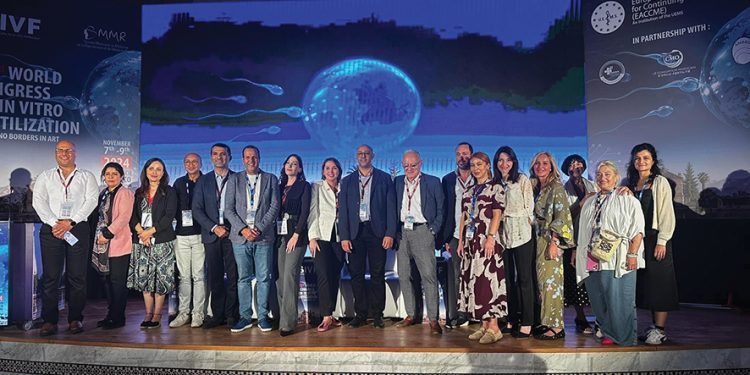Between November 7 and 9, the 22nd World Congress on In-Vitro Fertilization took place in Marrakech, Morocco. The event could easily have escaped my mind and eye had it not been for the direct demonstration of Sakartvelo’s outstanding medicinal success there. Practically no other international get-together of that caliber of recent times, including even the Olympic Games, can boast a solid delegation of 62 members representing a single country. The program of this paramount medical forum was notably rich and meaningful, featuring 30 sessions with more than 50 speakers from around the globe, and our Georgian medics came up with their solid professional word in almost all of them- a genuine parade of our national talent and efforts!
The World Congress was a huge success, and gave universal recognition to the fact that the field does an irreplaceable service to humankind. It offered an exchange of fresh medical ideas and recent developments in the field; millions of dollars spent with an explicit eye on the future, and, most importantly for us, featuring the active and vigorous participation of this nation’s strong human resources in the affair. Among the key topics of the Congress was Repeated Pregnancy Loss, Reproductive Endocrinology, and Genetics in Artificial Reproductive Technology. It was attended by over 1500 participants, the Georgian bunch being the largest national group.
One of the most appreciated highlights of the Marrakech Conference on In-Vitro Fertilization was Professor Archil Khomasuridze’s chairmanship of the session which opened the congress with keynote presentations about the Polycystic Ovary Syndrome. Khomasuridze, with 50+ years of experience in the field, was like a fish in water in the company of his old and comparably younger colleagues, most of whom he has mentored and put on the right track to building a medical career. The trust he enjoys among his fellow doctors, both in Georgia and beyond its boundaries, is truly incredible. His renowned monographs and hundreds of scientific papers on reproductive medicine have wide international recognition, and the number of quotes from his works knows no bounds. Indeed, our nation boasts a real guru of reproductive medicine, a branch which incorporates a diversity of reproductive conditions, their preclusion and evaluation, as well as their eventual diagnosis and treatment.

Literally every member of the Georgian delegation was proactive at the congress, doing his or her job at a level recognized by international standards. Among the many Georgian speakers was Dr. Anna Ghviniashvili, who spoke on the post-partum condition of newborns. The presentation analyzed the health status of the children, with the aim to prove that health complications associated with In-Vitro-Fertilization babies was due to maternal and paternal age and other reasons for infertility, and not due to the procedure itself. Dr. Nata Nakaidze in turn enlightened the audience on mitochondrial replacement therapy, a novel solution to decrease diseases of that class. Indeed, she did it so well that she later received a certificate of excellence for having been the best oral communicator at the World Congress.
I can’t help emphasizing that reproductive medicine, including the currently trendy IVF, a field led in this country by Professor Archil Khomasuridze, has, over the last decades, become one of the most important medical directions for the Georgian nation. Indeed, perhaps it is one of the most significant human activities possible, because what Sakartvelo needs first and utmost is the guarantee that we will still be around 50 or 100 years from now, so that our culture, our language, our faith, and our belief in the future are alive and ticking. It is truly quite feasible, as long as we know well what to do and how to bring that cherished future to life. Certainly, international forums like the Marrakech Congress on In-Vitro Fertilization, embracing minor nations like Georgia as they do, are indeed conducive to that end.
By Nugzar B. Ruhadze














